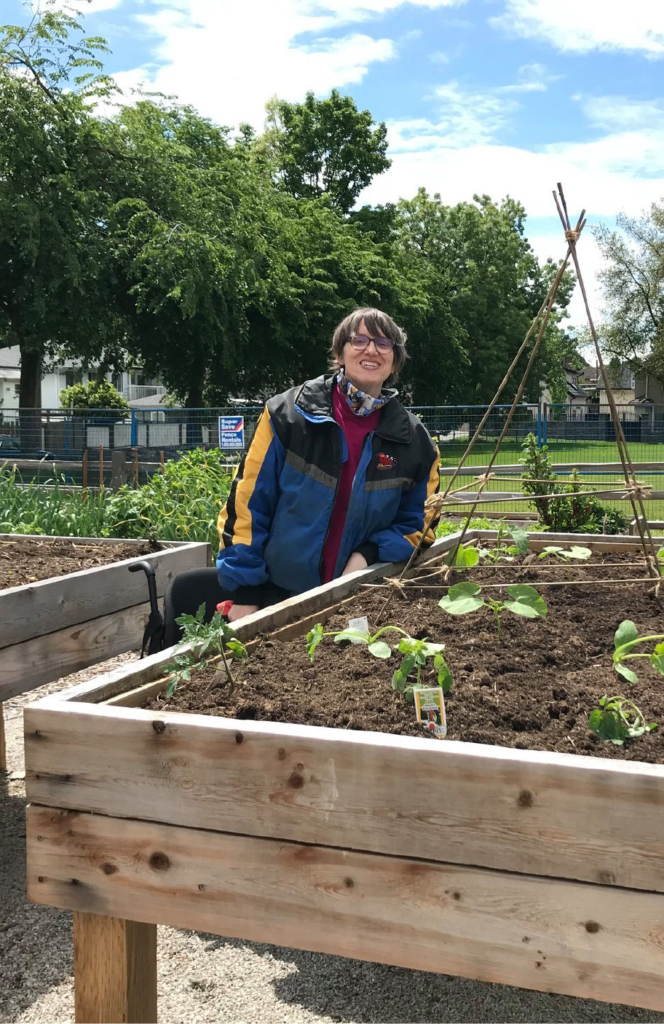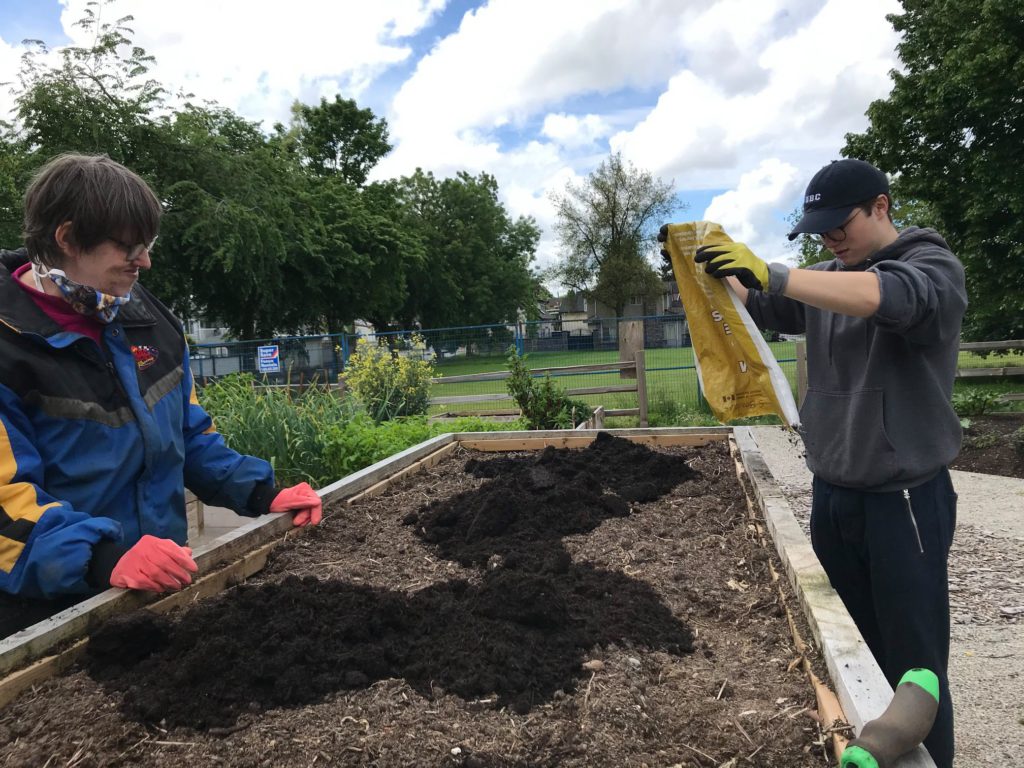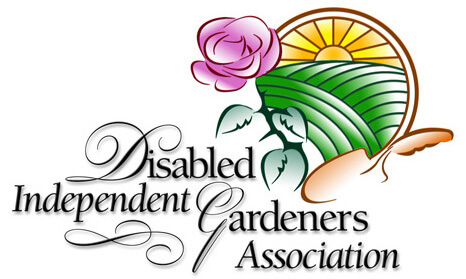
Elizabeth grew up gardening in rural Ontario. “My parents had a farm. They raised cucumbers and I remember helping out.’ But, as for many of us, moving to the city meant swapping crops for concrete. ‘I maybe had a few flowers, but nothing like a garden.’
Elizabeth has used a wheelchair for the past four years following two small strokes. She notes that her building has only a limited number of accessible beds, adding that ‘It’s good to have one that you can get your wheelchair under.’
Enter the Disabled Independent Gardeners Association (DIGA). Thanks to DIGA, and her own initiative, Elizabeth has been able to cultivate her passion once again. She now has her own plot in Still Creek Community Garden in East Vancouver.
‘I was just searching for accessible gardening online, and it came right up. What I like about DIGA is that they provide all the equipment. I didn’t even have a garden until about a week ago, so I didn’t know what to expect. But they provide all the seeds and plants and everything.’
The DIGA training she received was great for indoor plants as well. She has already used her new knowledge to grow several succulents, plants that require some counter-intuitive care, especially in Vancouver’s less than arid climes.

Elizabeth is now looking forward to an upcoming workshop on hydroponics, and to getting back to her plot after a short break brought on by COVID— apparently, lots of Vancouverites have started gardening during the pandemic, leading to a seed shortage in the area.
Despite DIGA’s workshops and the efforts of people like Elizabeth, gardening can still present some unexpected challenges: ‘We tried to get the cat to eat her cat grass, but we have lots of plants on the balcony, and whenever she’s out there, she tries to eat those.’
Both plants and pets offer consolation in these difficult times; sometimes, though, our feline friends love nothing more than munching on our carefully cultivated flora.
